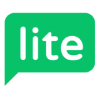20 Must-Have Email Marketing Tools for Successful Campaigns
Email marketing has become an essential part of any successful digital marketing strategy. It enables businesses to reach their target audience with personalized and relevant content, increase brand awareness, and ultimately drive conversions. However, with so many email marketing tools available in the market, choosing the right one can be overwhelming. Each tool comes with unique features, pricing, and capabilities that suit different business needs.

The email marketing, marketing automation, and CRM tools you need to create incredible customer experiences.
Visit website➔
Get reliable, scalable email to communicate with customers at the lowest industry prices
Visit website➔
Easy-to-use marketing solutions for quicker success and at a fraction of the cost of other solutions
Visit website➔
Reach your audience and attract new customers with robust email marketing powered by AI tools, marketing automation, landing pages and more.
Visit website➔
Connecting with your audience has never been easier with Campaign Monitor’s straightforward email marketing and automation tools.
Visit website➔
All the basic and advanced email marketing features you need to grow your business without added marketing suite expense.
Visit website➔
With Constant Contact, you can create effective email marketing and other online marketing campaigns to meet your business goals.
Visit website➔
ConvertKit is the go-to marketing hub for creators that helps you grow and monetize your audience with ease.
Visit website➔
Forge real relationships using the power of email, onsite messaging, and proven customer-first strategies.
Visit website➔
Manage and email your subscribers for far cheaper with EmailOctopus. Drag and drop email builder, powerful analytics, bounce/complaint tracking and more.
Visit website➔
EngageBay is an affordable all-in-one CRM with marketing, sales & support solution for growing businesses to engage and convert web visitors to happy customers
Visit website➔
Powerful, simplified tool to send emails, create pages, and automate your marketing.
Visit website➔
HubSpot is an all-in-one platform that offers a range of features, including CRM, marketing automation, email marketing, social media management, landing pages, analytics, and more.
Visit website➔
Klaviyo is a cloud-based marketing automation and email marketing software designed for e-commerce businesses
Visit website➔
Win new customers with the #1 email marketing and automations brand* that recommends ways to get more opens, clicks, and sales.
Visit website➔
Advanced tools anyone can use to create newsletters, websites, email automations and more. Backed by 24/7 award-winning support.
Visit website➔
Moosend is the simplest and most modern solution to deliver email marketing and automation experiences that drive real revenue growth.
Visit website➔
Take the shortcut to revenue growth with Omnisend’s easy-to-use platform for ecommerce email marketing, SMS and automation.
Visit website➔
Leverage the email service that customer-first brands trust for reliable inbox delivery at scale.
Visit website➔
Sendinblue is an all-in-one platform that offers email marketing, SMS marketing, chat, CRM, marketing automation, landing pages, and more.
Visit website➔Good to know...
What features should I look for in an email marketing tool?
When selecting an email marketing provider, there are several important features to look for. Here are some of the key ones to consider:
- Ease of use: Look for an email marketing provider with an intuitive and user-friendly interface, as well as simple navigation.
- Customization options: Your provider should offer customizable email templates, design tools, and personalization options to make your emails stand out.
- Automation capabilities: You should be able to automate campaigns, trigger emails based on specific actions, and segment your audience to deliver more targeted messaging.
- Deliverability: A reliable email marketing provider will have a high deliverability rate and ensure that your emails land in your subscribers' inboxes.
- Analytics and reporting: Detailed reporting and analytics are essential for measuring the success of your campaigns, tracking engagement, and making data-driven decisions.
- Integration with other tools: Look for a provider that integrates with other marketing and CRM tools, such as social media platforms, landing page builders, and customer databases.
- Customer support: Make sure your provider offers comprehensive customer support and resources, including tutorials, guides, and a responsive support team.
By considering these features when selecting an email marketing provider, you'll be better equipped to find a platform that meets your needs and helps you achieve your marketing goals.
When researching email marketing tools, it's important to ask the right questions. Here are some key questions to consider:
- What is the pricing structure and what features are included at each pricing tier? Are there any hidden fees?
- How easy is it to create and send emails, and are there pre-made templates available to use?
- What kind of automation capabilities does the tool offer? Can you trigger emails based on specific actions, and can you segment your audience for more targeted messaging?
- What kind of reporting and analytics does the tool offer? Is it easy to track open rates, click-through rates, and other metrics?
- How does the tool ensure deliverability and avoid being marked as spam?
- Does the tool integrate with other marketing and CRM tools, such as social media platforms and customer databases?
- What kind of customer support is available, and how responsive is the support team?
- Is the tool GDPR and CAN-SPAM compliant, and does it offer features such as double opt-in and unsubscribe links?
- How easy is it to manage and grow your email list with the tool?
- What kind of security features does the tool offer to protect your data and your subscribers' data?
By asking these questions when researching email marketing tools, you'll be able to find a platform that fits your business needs and helps you achieve your marketing goals.
How much do email marketing tools cost?
The cost of email marketing providers can vary depending on the specific platform and the features you need. Some providers may offer free plans with limited features, while others may have monthly or yearly subscription plans with more advanced features.
Generally, the cost of email marketing providers can range from free (with limited features) to several hundred or even thousands of dollars per month for enterprise-level plans. The cost may also vary based on the number of subscribers on your email list or the number of emails you send each month.
Here are some examples of pricing for popular email marketing providers:
- Mailchimp: Free plan for up to 2,000 contacts and 10,000 emails per month, with paid plans starting at $9.99/month
- Constant Contact: Plans start at $20/month for up to 500 contacts, with additional features and pricing tiers available for larger lists
- Campaign Monitor: Plans start at $9/month for up to 500 contacts, with additional features and pricing tiers available for larger lists
- Sendinblue: Free plan for up to 300 emails per day, with paid plans starting at $25/month for up to 10,000 emails per month
It's important to carefully evaluate the features and pricing of different email marketing providers to find one that fits your business needs and budget.
Can email marketing tools be used to segment my email list and send targeted emails to specific groups of subscribers?
Yes, email marketing tools can be used to segment email lists and send targeted emails to specific groups of subscribers. Segmentation allows you to divide your email list into smaller groups based on characteristics such as location, interests, behavior, or demographics. This enables you to create more targeted and personalized email campaigns that are more relevant to each group of subscribers.
Most email marketing tools offer segmentation features, which allow you to create rules that automatically sort subscribers into different groups based on specific criteria. For example, you could create a segment of subscribers who have made a purchase in the last month, or a segment of subscribers who live in a specific geographic area.
Once you have segmented your email list, you can create targeted email campaigns that are tailored to each group of subscribers. This could include personalized subject lines and content, specific calls-to-action, and offers that are relevant to the interests and needs of each group.
Sending targeted emails can help improve open and click-through rates, as well as reduce the likelihood of subscribers unsubscribing or marking your emails as spam. It also allows you to more effectively nurture leads and build relationships with your subscribers.
Are there any AI or automation features available in email marketing tools, such as automated email sequences or personalized content recommendations?
Yes, many email marketing tools offer AI or automation features that can help you create more effective email campaigns. Here are some examples:
- Automated email sequences: This feature allows you to create a series of automated emails that are triggered by specific subscriber actions or events. For example, you could create a welcome email sequence for new subscribers, or a cart abandonment sequence for subscribers who added items to their cart but did not complete the purchase.
- Personalized content recommendations: Some email marketing tools use AI to analyze subscriber data and recommend content that is most likely to be of interest to each individual subscriber. This can help you create more personalized and relevant emails that are more likely to be opened and clicked.
- Predictive analytics: Some email marketing tools use predictive analytics to analyze subscriber behavior and predict which subscribers are most likely to convert. This can help you target your most valuable subscribers with more personalized and targeted campaigns.
- A/B testing: Many email marketing tools offer A/B testing features that allow you to test different variations of your emails and determine which version is more effective. This can help you optimize your campaigns for better performance.
- Dynamic content: Some email marketing tools allow you to create dynamic content that changes based on subscriber behavior or preferences. For example, you could show different product recommendations to subscribers based on their past purchases or browsing history.
These are just a few examples of the many AI and automation features available in email marketing tools. By using these features, you can create more effective and personalized email campaigns that drive better results.
Are there any integrations available for email marketing tools, such as with CRM or social media platforms?
Yes, many email marketing tools offer integrations with other marketing and sales platforms, such as CRM systems or social media platforms. Here are some examples:
- CRM integrations: Many email marketing tools offer integrations with popular CRM systems, such as Salesforce, HubSpot, and Zoho. This allows you to sync your email lists and subscriber data with your CRM system, and create more targeted and personalized email campaigns based on customer data.
- Social media integrations: Some email marketing tools offer integrations with social media platforms, such as Facebook, Twitter, and LinkedIn. This allows you to create social media campaigns that are aligned with your email campaigns, and reach a wider audience with your marketing messages.
- E-commerce integrations: If you run an e-commerce business, you may be able to integrate your email marketing tool with your e-commerce platform, such as Shopify or WooCommerce. This allows you to create targeted email campaigns based on customer purchase data, and send automated emails for events such as abandoned carts, shipping notifications, or order confirmations.
- Analytics integrations: Many email marketing tools offer integrations with analytics platforms such as Google Analytics or Adobe Analytics. This allows you to track the performance of your email campaigns, and gain insights into subscriber behavior and engagement.
By using integrations with other marketing and sales platforms, you can create a more comprehensive and effective marketing strategy that leverages the power of multiple channels. Integrations can help you streamline your workflow, save time and effort, and ultimately drive better results for your business.